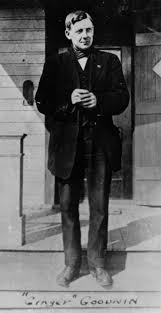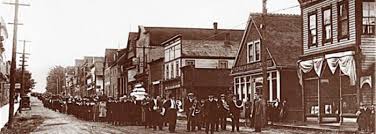
Today we remember Albert “Ginger” Goodwin, a trailblazer in British Columbia’s labour movement and the namesake of our firm, GoodWin Law.
Born in England, Goodwin came to Canada in 1906 and eventually to Cumberland, BC in 1910 to work as a coal miner. His labour activism began there and he became a key figure during the 1912 to 1914 Coal Miners’ Strike. His role as a leader in the strike led to him being blacklisted from the company, and he was forced to leave Cumberland.
He found new work in Trail, where he took on a greater role in the movement. He helped organize and was elected full-time secretary of the local smelter workers’ union. He was also chosen as a vice-president of the BC Federation of Labour. In 1916, he ran for office with the Socialist Party, earning 20 percent of the vote. Goodwin was a powerful voice for economic justice, safety in the workplace, and political representation for working-class people.
In the months before his death, Goodwin had been on the run to avoid a politically suspicious order that he report for military duty. The order had been made during a strike he led in Trail. The Dominion Police had been tracking Goodwin for months before he was fatally shot on July 27, 2018, by a police officer in the woods overlooking Cumberland. The circumstances of his death remain inconclusive. He was 31 years old.
His funeral on August 2, 1918, drew widespread attention. In Cumberland, the procession stretched from one end of town to the other. In Vancouver, nearly 6,000 workers walked off the job in mourning and protest. Trolleys stopped, shipyards closed, and many other job sites shut down. It was Canada’s first general strike. Goodwin’s death became a rallying point for the labour movement and left a lasting impact on workers across the country.
In 2018, the Government of British Columbia officially proclaimed July 27 as Ginger Goodwin Day, marking 100 years since his death and recognizing his legacy as a champion for workers’ rights.
At GoodWin Law, we carry his name with pride and strive to honour his legacy every day through our work on behalf of working people. Today, we remember his life, his courage, and his lasting contribution to the labour movement in British Columbia and Canada.
This article is sourced primarily from the book: “On the Line: A History of the British Columbia Labour Movement” by Rod Mickleburgh.
